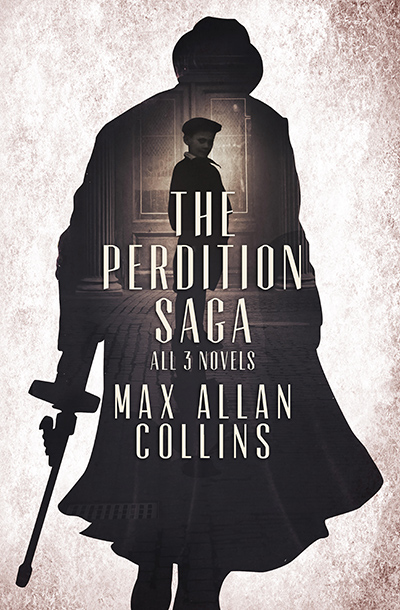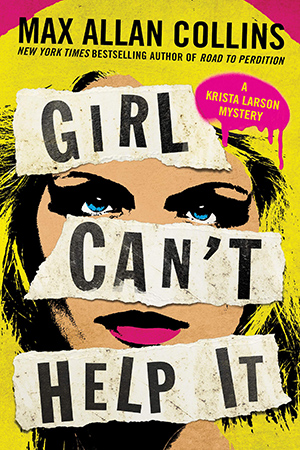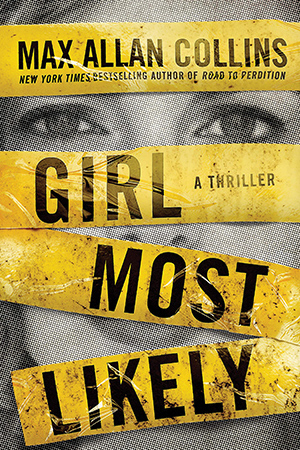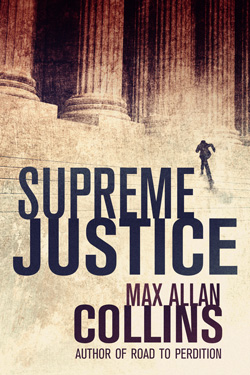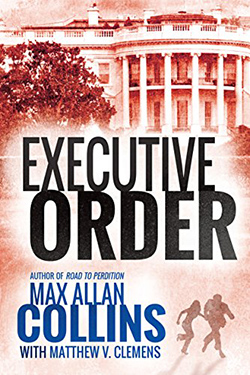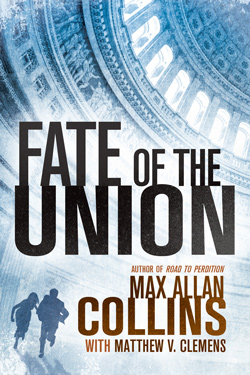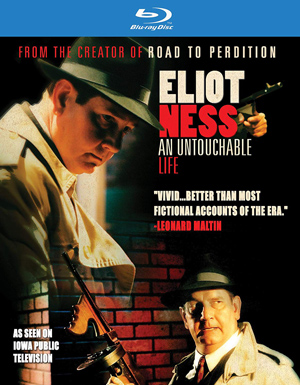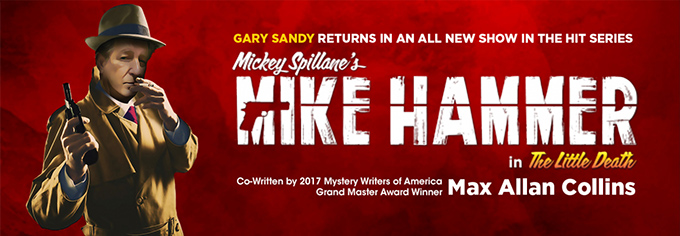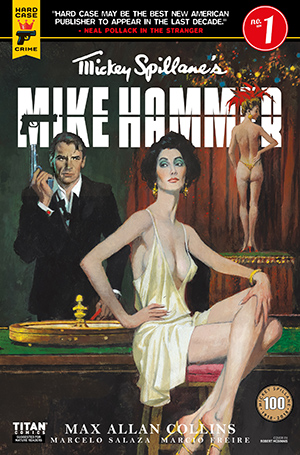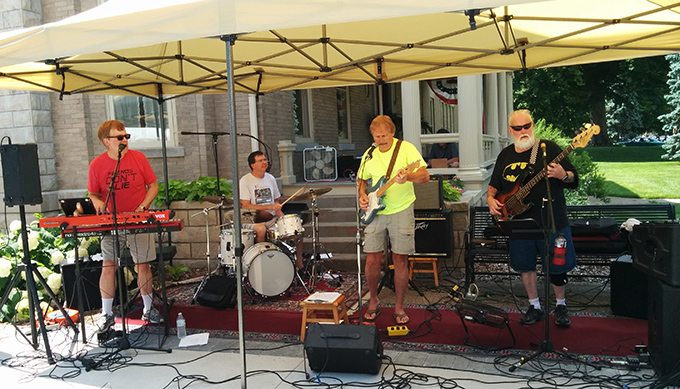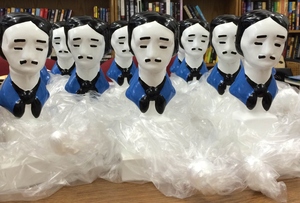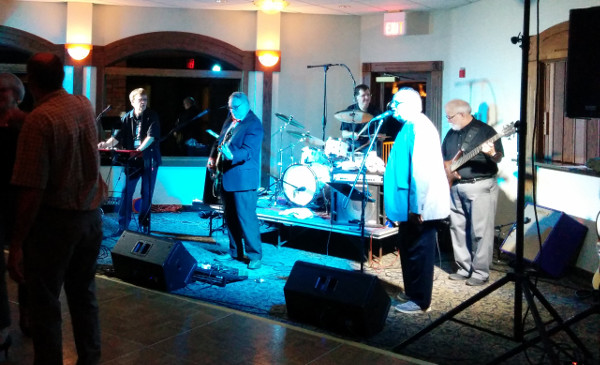Some great deals on Kindle this week.
First, Brash Books is offering the complete Perdition saga (novels, not graphic novels), which includes the long suppressed full-length novelization of Road to Perdition, plus my two sequels, Road to Purgatory and Road to Paradise. The fine folks at Brash are offering this through Amazon for a mere $9.99.
Girl Can’t Help It is on sale for $1.99 as a Mystery, Thriller & Suspense Kindle book deal from now through June 30. And Girl Most Likely is just $0.99 in that same sale.
All three Reeder and Rogers novels are, too – $1.99 each as Mystery, Thriller & Suspense Kindle book deals through the end of the month – Supreme Justice, Fate of the Union and Executive Order. [Note from Nate: if you purchase or own any of the Girl or Reeder and Rogers books on Kindle, the audiobooks might also be available at a significant discount — I’m seeing them for $1.99.]
Speaking of political intrigue….
This is going to be a little tricky to write, so forgive me.
I belong to a number of writers’ and screenwriters’ organizations. They vary from quite active, guilds for example, to others that serve mainly to be a means of presenting awards in a chosen genre, with all the stops between. All of these approaches seem valid to me.
One of these organizations – please don’t try to guess which, because I do not wish to embarrass or criticize anyone, really – briefly became embroiled in the current, understandably heated conversation about the Black Lives Matter movement and the police in America.
I think “Black lives matter” gets fuzzy, because there’s an organized group but also the phrase itself. I can see how someone might have an issue with the group, but not how anyone could really thoughtfully object to the phrase. The “all lives matter” response is glib – of course all lives matter. But pointing out that black lives matter reflects the undeniable reality that a minority has literally been on the firing line for as long as any of us can remember, and a lot longer than that.
Here’s where it gets tricky. A member of the writers group in question is a retired police officer. He objected to some of what was said (or at least implied) about the police, and pointed out that police are also on the firing line and have been stabbed and spit upon in the aftermath of the horrific crime that took the life of George Floyd. He specifically objected to a pro-Black Lives Matter statement from our organization because, as a member, he wasn’t in full agreement with it. (I should say that this exchange took place before the disturbing footage emerged of a seventy-five-year-old man being shoved to the pavement and left to bleed there.)
Many members of our organization responded negatively, a very few getting personal. I tried to pour some water on the fire, but may have inadvertently poured gasoline instead, when I suggested we add a line pointing out that most police officers, a good number of whom are African-Americans, are dedicated public servants.
No one liked that suggestion, and I quickly withdrew it.
Within perhaps an hour and a half of the discussion between members (on line) beginning, the former police officer resigned from our organization.
I have frankly been trying to process this. Part of me thinks, as a writers organization, we should not have waded into politics. And yet is racism really politics? Isn’t it the sin that has stained America from day one, and goes way beyond politics? Doesn’t it go past left and right and into simple humanity?
Of the various writing and filmmaking organizations I belong to, I share membership with writers whose work I admire, but others whose work I dislike. As artists, we don’t always agree – in fact, we often don’t. For me, it’s about storytelling and creativity. I can respect a fellow writer whose writing I don’t admire because that writer is living the writer’s life that I am, with the rewards but also the problems that come with it – chasing the next gig, for example. On a basic level, we’re all just trying to make a living. Professional writers, no matter what they think of each other’s work, have that in common.
I feel our organization should have respected this member and his right to disagree. And if he objected to the statement the organization made, he should have had a better option other than to resign. Anyway, I’m not sure an organization should make a statement that all of its members haven’t signed off on. That statement should probably have included only the names of those members who did. I would have gladly signed. Proudly signed.
This (now ex-)member was a work horse, a dedicated member of the organization, and an award winner. It makes me sad and a little sick that we have lost him. Part of me knows that creative people have to take a stand against something as major as racism, and yet I admit to keeping (mostly) quiet about political figures who seem to me to be blatantly racist because I don’t want to offend any of my readers. That’s probably cowardly, but I have a living to make, and maybe there’s a subversive aspect to my fiction that might make somebody’s thinking change or at least shift a little over time. I don’t know. Really don’t. Maybe I’m just a coward.
On the other hand, Quarry setting fire to a Ku Klux Klan rally in Quarry in the Black may have indicated where I’m coming from.
Limiting freedom of speech within our writing and screenwriting organizations to those who agree with us is antithetical to everything those of us who create for a living are about. And this ex-member’s objections did not reflect racism, but in fact spoke of years of effort to battle against it within the system.
An organization’s mission statement can spell out certain things that won’t be tolerated – racist bile would seem high on that list – but to be intolerant of a reasoned position from another point of view is dangerous. Someone in power whose name I won’t mention is pretty cavalier about the Constitution. Maybe the writing and screenwriting communities should take better care of the First Amendment.
M.A.C.
